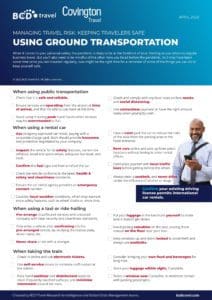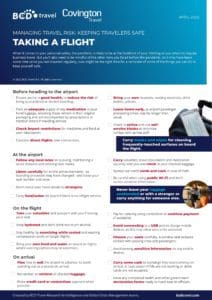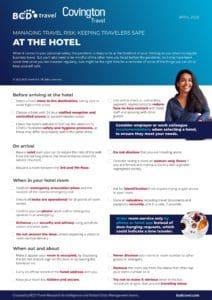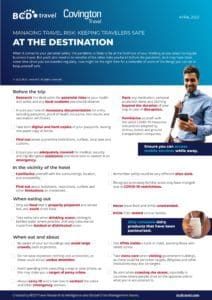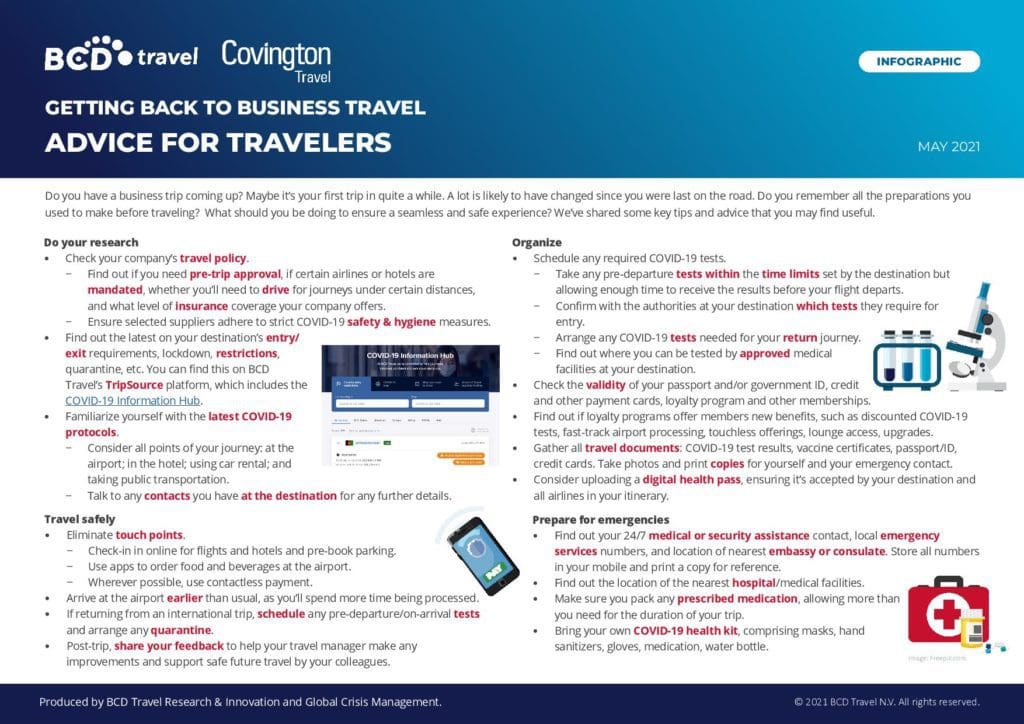Cost Saving Strategies for Business Travel
Every company is looking for cost-saving strategies for business travel. From the small business entrepreneur to the Fortune 500 power executive, everyone knows that there is no substitute for face-to-face meetings. There’s no doubt that the best way to close the deal, maintain a relationship, or get a hands-on perspective of a business is in person. Sometimes travel is pushed to the bottom of the priority list primarily because of cost.
At Covington, our professional travel advisors know all the ins and outs of airfare rules, benefits, and amenities at thousands of hotels and how to get around in cities across the world. Put us to the test.
Use alternate airports
Lower-cost airlines often use secondary airports for major cities, keeping other airlines’ prices competitive. If you are going to Chicago, consider flying into Midway instead of O’Hare. Headed to San Francisco? Try San Jose or Oakland instead. To get to New York City, you have the choice of three major airports, so compare.
Travel off-peak
Travel is seasonal with January and February generally lower demand in the U.S. If your plans include Europe, the summer months are high season; South America’s seasons are reverse of North America’s. Every destination has some seasonality built into the airfares, so if you have a choice, plan your trip for the lower seasons.
Plan ahead or stay longer
Similar to seasonality, advance purchases can reduce your airfare. Airfares are often lower if purchased 7, 14, or 21 days before travel. In addition, spending a Saturday night usually offers the lowest rates. Although business travel normally doesn’t extend over the weekend, staying three nights midweek is often much lower than spending two nights. Consider scheduling more appointments or even take a vacation day to explore your destination and stay longer.
Check the airline’s change policy
As a rule of thumb, the lower the fare, the more restrictive the change policy. If your meeting is set in stone, you can confidently accept a fare with a high change fee, but if you expect your travel schedule to remain fluid, multiple change fees can quickly outweigh a low initial price. The lowest ticket price may not be your lowest overall cost, so choose an airfare accordingly.
Understand the hotel’s extra charges
Just as change fees on airfares can negate a low fare, $20 per day for Wi-Fi or $25 per day for parking can add up quickly and make that low nightly rate uncompetitive. Choose hotels that include breakfast or complimentary gym access, depending on your personal needs. Many chain hotels are designed with the needs of a business travel road warrior in mind, so take advantage of their offerings.
Know the cost of ground transportation
In a sprawling city like Los Angeles, renting a car for a day might cost less than one cab ride. On the other hand, in New York City, the parking fee alone might top several short taxi trips. Shared shuttles and metros provide easy and inexpensive airport-to-city transport in many cities. Know your distances, time requirements, and costs, then plan accordingly.
Use a credit card that accumulates points and perks with business purchases.
Small business owners and entrepreneurs can use points for last-minute, expensive business travel to reduce cash expenditures. Corporate travelers who are reimbursed for business expenses might use the points for a well-earned family vacation.

